Check out some books by your tutor Fiona Veitch Smith … (click on the book covers to find out more)
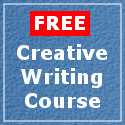 Hello everyone, welcome to the first session of our free online creative writing course. Over the next eight sessions we will be looking at different aspects of creative writing and trying our hand at various forms. I’d strongly encourage you to have a go at the exercises along the way, and please feel free to leave comments or ask questions at the end. If you have arrived on this page without first reading the home page and frequently asked questions page (on tab above) please go back and do so now. If you have read them, enjoy the course!
Hello everyone, welcome to the first session of our free online creative writing course. Over the next eight sessions we will be looking at different aspects of creative writing and trying our hand at various forms. I’d strongly encourage you to have a go at the exercises along the way, and please feel free to leave comments or ask questions at the end. If you have arrived on this page without first reading the home page and frequently asked questions page (on tab above) please go back and do so now. If you have read them, enjoy the course!
Creativity and Art
What is creativity? The Collins dictionary defines it as ‘the ability to cause something to exist’. Without getting into too much of an existential discussion, I would say that with every thought that is expressed, something has been created. It was Descartes who said: ‘I think, therefore I am’; well I would add, ‘I think, therefore I create’ (do you feel a God complex coming on?). But how do we express our thoughts? Sometimes we do it verbally, other times by body language and still again through what is loosely termed ‘art’.
Art takes place when a thought is expressed and fixed in a way that other people may experience it on an aesthetic level – through music, writing, painting, sculpture, choreography and so on. Many artists say that their best work takes place when they ‘by-pass’ the thought and simply express the feeling. This may be true, but for writers, who use a verbal medium, a feeling must first be converted into a thought before it can be put into words. Don’t over analyse the thought before you express it, as this way you can ‘channel’ the purest interpretation of the feeling, but some cognitive process needs to take place. Some writers prefer to mull over a thought and give it form before they put pen to paper – I’m one of them – but it’s good practice to try and switch off the ‘editor’ at least for the first draft. First response trigger exercises are useful in this regard and can release some unexpected words and images.
Exercise 1:
Write down your first response to these words or phrases:
- Blue ball
- And that’s when the sadness came
- Coffee
The first task of a good writer is to convert feelings into thoughts and then into words. This is the raw material that can then be converted into something more permanent. Some writers refuse to toy with their first drafts, believing their creativity will be diluted; I disagree. Allowing your critical mind to improve a piece of writing is where the craftsman meets the artist. Something produced only by the former will lack soul and something by the latter will lack form. Good writing is a combination of art and craft.
For public consumption
Art, of course, is highly subjective and one woman’s masterpiece is another woman’s unmade bed. We all have the ability to create, but whether or not our creation is ‘art’ must be left to the eye or ear of the beholder.
In this session we will look at how you can craft those creative thoughts into creative writing to share with other people. And that’s what sets ‘public’ writing apart from ‘private’ scribblings – there’s a perceived readership in mind. When I ramble on in my journal, I am the only one who will read it (hopefully!) so my only concern is getting my thoughts down on paper. The moment I want someone else to read it I begin to consider ways to improve the presentation and craft it into something more aesthetically pleasing. I consider which words may sound more colourful, whether or not my sentence structure is grammatically correct, whether I’m using evocative imagery, and so on.
Story, feeling or image?
What is it about those creative thoughts that you think might be of interest to other people? Do they speak of an eternal truth or a common experience? Do they make you laugh or cry? Do they suggest a story that will entertain or a poem that captures a moment that must be shared?
Exercise 2: In 50 words or less write down why you want to write then list three creative thoughts that you’ve had lately (each 10 words or less). These may be an image, a musing, a ‘truth’, a story, or so on. If you haven’t had any, take yourself for a walk and look around; what grabs your imagination? Browse through a newspaper or a magazine; do any stories or pictures catch your attention? Think back over your day; did anything funny, charming, shocking or unusual happen to you or someone you know?
Poetry or prose?
Some people are more suited to writing poetry than prose and some people do well at both. Although we won’t be discussing it in this course, other people are more suited to script. I’m one of them. I’ve had relative success as a prose writer and in fact have managed to earn a living from it, but it’s taken years of hard work to get to this point. I recently branched out into scriptwriting and found that I had much more of a natural ability. (If you’re interested in finding out more about scriptwriting, check out getting started in playwrighting). You may find that you’ve been trying to make it as a poet when actually you’re more suited to prose. Now I don’t want to pigeonhole anyone, but ask yourself the following questions:
- Are you more attracted to films than stills?
- Do you enjoy telling people ‘stories’ from your life?
- Do you prefer to read stories or poems?
If yes, to these, then you may be more suited to prose than poetry. If no, then the opposite may be true. If it’s ‘sometimes yes, sometimes no’ then perhaps you are suited to both. We shall be looking at how to write poems in more detail in session 7, but suffice to say, a poem is like a snapshot of a moment. If you can’t rest until you know what happened before and after, then prose may be your genre.
Exercise 3: Take one of the three creative thoughts you wrote down in Exercise 2, then list 20 separate words that communicate or describe that thought. Do not, at this stage, link the words into sentences. Once you have your 20 words use them in a poem of 16 lines or less. Then, take the same 20 words and work them into a short story of under 300 words. Which exercise came more easily? Which form has best communicated your creative thought?
Further Resources:
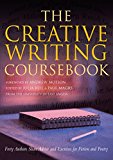
There are some excellent resources out there for creative writers. To get quick ‘starter’ images when your own well is dry I recommend The Writer’s Block by Jason Rekulak. I’m currently working through The Creative Writing Coursebook by Julia Bell and Paul Magrs and finding it very useful.
The next creative writing course session is how to write a short story. But before you move on to that, please feel free to leave a comment or ask a question in the box below.
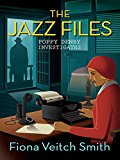
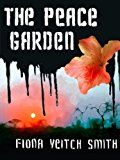
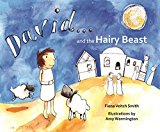
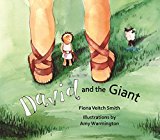
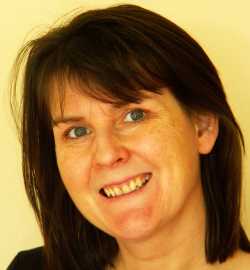 Welcome to The Crafty Writer's free online creative writing course, presented by Fiona Veitch Smith, a freelance journalist, editor, author, playwright, screenwriter and writing teacher. I hope that you'll see a dramatic improvement in the quality of your writing as you work through this course.
Welcome to The Crafty Writer's free online creative writing course, presented by Fiona Veitch Smith, a freelance journalist, editor, author, playwright, screenwriter and writing teacher. I hope that you'll see a dramatic improvement in the quality of your writing as you work through this course.
Hi Fiona,
I tried your exercises and was amazed at how easily the poetry came to me. I have always loved poetry but have never tried to write any. I think I had an idea in my head that it was too difficult or too clever for me to attempt.
It may not be any good but it seemed to say so much more than my short story did. It was hard to get across what I wanted to say in the story form within the 300 word limit.
Hi Soo,
I used to feel that way about poetry too – only the cleverest of writers could do it. Well, maybe only the cleverest of writers are very good at it, but I, like you, was impressed at what came out of me when I gave myself permission to try. With my class on Wednesday I challenged them to retry the exercise (with another creative thought or image) but this time write the prose first and see how it impacted upon the poetry. One of my students said that the poetry exercise helped her find the internal voice of the character she was working on, and the prose helped her discover the plot. Give it a go and let me know what happens.
Hello Fiona
I’ve just worked through the exercises in this first lesson and found it quite interesting to need to write to someone else’s guidelines to rather than just whatever I choose. I’ve not been there since I left school!
My conclusions are that I use real incidents as starters as the Blue Ball triggered a memory of one I’d seen under a bush in the garden this afternoon, but soon moved on to the fun my grandsons might have with it when they next come to visit. Also that I’m never satisfied with my 1st draught of anything, and that I write prose and not poetry from choice. The nearest I have ever come to poetry is rendering some of the Psalms into blank verse (representing a non-expert translation into English from another language), some of which I think are not bad.
Thanks for providing the course for free. I look forward to the next part.
Andrew
Hello Andrew. I wonder if it’s the real incident or the visual image that triggered your response (or a bit of both). I tend to write from strong visual images too. The other two examples were less visual. We will be looking at prose for the next few weeks but will have another session on poetry later in the course. Perhaps you might surprise yourself. This Wednesday we’ll have a look at the short story. Thanks for visiting and I hope you continue to benefit from the course.
Fiona
I found that by writing the prose first, I could concentrate on the images before me, rather than the story behind the image. It was as if I could give myself the go-ahead to let the words spill out! Thanks fi, see you on wednesday.
love tammy
xxxx
Very interesting result. For visitors wondering what Tammy was referring to, I asked her to write a poem of an image first then prose, then, with another image, reverse the process and see how it impacted upon her writing. I know Tammy’s writing from previous courses and I can tell you that she’s a born storyteller. Sometimes that can get in the way of just focusing on the moment; with this exercise she seems to have got the story ‘out of her’ so that she can relax into the image. Tammy, I saw your other post and will look at it properly tomorrow. Hope your cold’s better.
Fiona
Hi Fiona, One week late!! I thoroughly enjoyed the first session of the course and was very surprised with all the postive encouragement. This week was not good for me, I felt “brain-dead” and without a creative thought in my head. My problem, nothing to do with the class. Work stress and tiredness, my apologies for a) being late & b)lack of input on my part! Hope my creative juices are working for next week. See you next week. Thankyou, Marge.
Brain dead or not you still had some positive things to say. See you next week.
Excellent exercises, Fiona. They only confirmed that I prefer writing poetry, but will persevere with trying to write short stories. Thank you.
Glad you got something out of it, Verica. I firmly believe that poetic writing can only benefit your prose. It helps you to hone in on the essence of a moment and encourages you to write with all your senses. Even in prose it is good to consider the sound and rhythm of a sentence. So use the tools you’ve got. We’ll be looking at using poetic techniques in prose later in the course. I hope you enjoy the next short story session.
I have just run across your course, apparently a year too late. Will these be a new one coming out or should I just follow this one for now.
Thanks,
John Bennett
Hi John,
This course ran ‘live’ last year. But it has been so popular that I left it on the site. People are working through it all the time, so just click on the first session and get started! If you have any queries or comments just shout!
Happy writing,
Fiona
I am so enthusiastic to try your strategy in teaching writing. Yet, i hope that i teach in those schools that encourage language learning;it is a long story because it is related to the whole schooling system. but better than nothing. i am aspiring to make a difference even though change is difficult and gradual.
Thank you
YOu’re most welcome, Soha. I developed my teaching style by simply asking myself two questions:
1. What would I have liked someone else to have taught me?
2. How would I have liked them to teach it?
Ask yourself those two questions and your teaching style and strategy will flow naturally and be true to who you are.
Good luck,
Fiona
Last exercise I struggled and struggled with the poem. It took longer than the prose. But, I only went through 1/2 the prose because I checked the word count…640 words before I knew it. What does that mean? I’m not a poet nor a short story writer..ugh!
Don’t get too disheartened after one exercise, Jamie. 300 words is what’s known as micro-fiction and is quite hard to do. I set the 300 word limit so that you would write something comparable in length to the poem – that would make it easier to compare them. The fact that you naturally wrote longer, tells me you may be more inclined towards short stories which can be anything up to 6000 words! I was hoping you would discover that you were more naturally inclined towards writing in a prose style or poetry style / structure than the length of the piece.
Well, I did re-write the ‘micro-fiction’ before reading your response. Which I am glad I did. It was extremely difficult to trim it down. (The poem was better!) Thank you for the explanation, I will continue to move forward.
Onwards and upwards, Jamie!
Dear Fiona,
I tried writing the microfiction. I only have 112 words. Is that long enough? It described the whole event. It came easir than the poem. Although I do write poetry. I really enjoyed learning the importance of revision. I do not revise very often. I had a long standing aversion to it. Thank you for these lessons.
Hi Lynda. How long is a piece of string? If you covered the whole event, then that’s fine. But if you do have spare words to play with, why not use them? Go back over it and see if there is anything you can flesh out. But don’t pad for padding’s sake.
Glad you’re enjoying the course,
Fiona